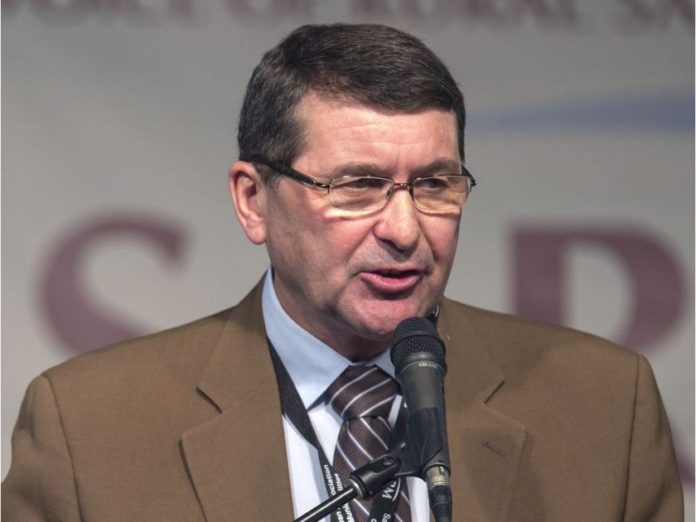The Saskatchewan Association of Rural Municipalities (SARM) has called on the provincial government to reinstate the Grow Your Own Nurse Practitioner Program in rural areas.
SARM president Ray Orb said rural Saskatchewan faces a healthcare crisis due to understaffing. On Wednesday, he called on the province to make it easier for nurse practitioners to work where they live instead of recruiting out-of-province candidates.
“This an issue for people who live in rural and remote areas of this province who just need better health care coverage, and of course, NPs can help a lot of with that,” Orb said. “In a lot of cases, they can be the first contact for a patient.”
The provincial government introduced Grow Your Own Nurse Practitioner in 2014. The program offered NPs wages and benefits for up to two years while they received full-time nurse practitioner training, based on a five-year return-of-service agreement with a sponsoring health region.
Orb said the program increased the number of NPs working in rural areas, and can do so again if brought back.
“We know there are some clinics, some hospitals, that are needing more nurse practitioners out in the rural (areas),” Orb said. “We’re asking the province to go back and look at that program again to … perhaps bring it back or make some enhancements to the existing program to see if we can improve that kind of delivery.”
The Saskatchewan Association of Nurse Practitioners (SNAP) gave their support for Orb’s request. SNAP president Johanne Rust said NPs are already being added to teams in hospitals, cancer care centres, and walk-in clinics where there are service gaps. She said adding more in rural areas would help improve access to care, with 30 new NPs able to serve roughly 36,000 patients.
“We work under our license and regulations and can work in many clinical areas with minimal supervision,” Rust said in a press release. “Nurse Practitioners can effectively manage most needs of their patients and refer anything more complicated to specialists or doctors as appropriate.”
In a press release, SARM and the SNAP said Saskatchewan is underutilizing trained NPs. As of April 2023, they said, the province had 328 NPs, 10 per cent of which are either unemployed or working as registered nurses.
Orb said SARM officials plan to discuss the issue with Health Minister Everett Hindley and Rural and Remote Health Minister Tim McLeod during meetings next week. He said the province has budget constraints and is already spending a lot on healthcare, but wants to see some of it directed to an NP program.
The Daily Herald requested an interview with a representative from the Ministry of Health. The ministry sent a statement touting budget investments made in the past year to help increase the number of healthcare workers, including NPs.
In the statement, the government said the number of NP training seats at the University of Saskatchewan, University of Regina, and Saskatchewan Polytechnic has increased from 20 seats to 50 since 2007-08, The government also said it has started a new NP training program through a partnership between Sask Polytech and the U of r, allowing students to train closer to home.
The Ministry of Health also continues to provide grant funding to support NP recruitment and retention, the statement reads, including a relocation grant and bursary. That includes two NPs who received the $50,000 Rural and Remote Recruitment Incentive (RRRI) in 2023-24, and 22 NP students who received $2,000 each from the Final Clinical Placement Bursary.
“In August 2023, a first of its kind primary health care clinic opened in Warman staffed by three nurse practitioners exclusively,” reads the statement. “The Ministry of Health continues to move forward with a number of regulation amendments to expand the NP scope of practice in the province and make Saskatchewan a more attractive place for NPs to practice medicine.”
As of September 2023, there were 38 NP vacancies in Saskatchewan, 24 of which were in rural or remote communities.
NDP leader Carla Beck said her party supports SARM’s request to bring back the Grow Your Own Nurse Practitioner Program. Beck said too many healthcare centres in rural and remote communities have been closed due to staffing shortages. She said training and maintaining local NPs is the best way to reverse that trend.
“Healthcare workers who grew up here are most likely to stay here,” Beck said in a press release. “A Grow Your Own strategy is just common sense.”


